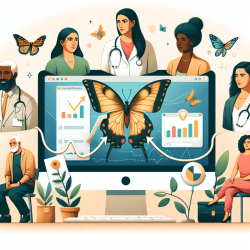Introduction
Waterborne illnesses have been a public health concern since the early 1900s, with pathogens like typhoid fever and cholera posing significant threats. While developed countries have since improved water safety measures, the risk of waterborne diseases persists, particularly from recreational and aerosolized water sources. This blog explores the findings from the research article "Procedures to Investigate Waterborne Illness" and how practitioners can leverage these insights to enhance their skills and outcomes for children.
Understanding Waterborne Illness
Waterborne illnesses can originate from various sources, including drinking water, recreational water, and aerosolized water. Pathogens can be ingested or come into contact with the skin, eyes, or respiratory tract. Immunocompromised individuals are particularly at risk. The research highlights the importance of rapid detection and thorough investigation to prevent outbreaks.
Key Findings from the Research
- Surveillance and Detection: Establishing a robust waterborne disease surveillance system is crucial. This involves early reporting of illnesses, coordinated efforts between public health partners, and systematic data organization.
- Investigation Procedures: A step-by-step approach to investigating outbreaks includes identifying the illness, detecting cases, determining the water source, and implementing emergency measures.
- Prevention and Control: Effective mitigation depends on rapid detection and understanding of the agents responsible for waterborne illnesses. Public health officials must remain vigilant to prevent intentional contamination.
Implementing Research Outcomes
Practitioners can enhance their skills by integrating the research findings into their practice. Here are some actionable steps:
- Data-Driven Decision Making: Utilize data from surveillance systems to make informed decisions about water safety and public health interventions.
- Collaboration: Work closely with public health partners and water utility staff to ensure a coordinated response to potential outbreaks.
- Education and Training: Engage in continuous education to stay updated on the latest techniques for investigating and preventing waterborne illnesses.
Encouraging Further Research
While the research provides a comprehensive framework for investigating waterborne illnesses, further research is needed to refine detection methods and prevention strategies. Practitioners are encouraged to contribute to this body of knowledge by conducting studies and sharing findings with the broader community.
Conclusion
By implementing the outcomes of the research on waterborne illness, practitioners can improve their skills and contribute to better health outcomes for children. Staying informed and proactive in water safety measures is essential in safeguarding public health.
To read the original research paper, please follow this link: Procedures to Investigate Waterborne Illness.










